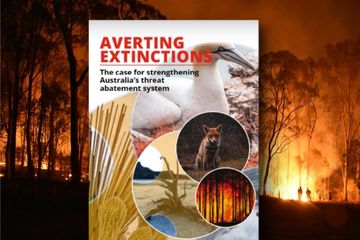The chance to comprehensively tackle one of the greatest threats to the environment alongside climate change could be squandered, is the verdict of the Invasive Species Council on one of Australia’s most important environmental reforms this decade, the Biosecurity Bill 2012.
Open for public submissions until Wednesday, Australia’s draft biosecurity law offers stronger options for keeping Australia’s borders safer and containing new invaders than the current Quarantine Act 1908, but is undermined by a flawed model of decision-making, according to Invasive Species Council president, Andrew Cox.
“The extent of reform needed is highlighted by Australia’s most recent State of the Environment report, which gave the worst possible ratings for impacts of invasive species on biodiversity – ‘very high’ and ‘deteriorating’ – and found that management outcomes and outputs are ‘ineffective’,” Mr Cox said.
“Instead of an independent statutory authority and expert commission recommended by the 2008 landmark Beale review, most biosecurity decisions will be made by the Secretary of the Department of Agriculture, Fisheries and Forestry, who has potentially conflicting roles in trade promotion.
“Instead of transparency, most decisions to allow new imports will be made without public consultation or expert review. Only import applicants have any legal rights of review.
“These processes stand in stark contrast to the consultation and legal rights available under Australia’s national environmental laws (the Environment Protection and Biodiversity Conservation Act 1999) for similar decisions about new animal imports.
“To do what has been promised – to provide for a cohesive national biosecurity system (‘one biosecurity’) protecting both agriculture and the environment – the Bill needs stronger environmental safeguards.
“A high priority is the establishment of Environmental Health Australia, a proposed collaboration between governments, community groups and environmental businesses, to develop better solutions for environmental biosecurity. This body would perform similar functions to and collaborate with the equivalent industry-government bodies Plant Health Australia and Animal Health Australia.
“Assailed by ever more pests, weeds and diseases, Australia’s environment needs to catch up with industry for biosecurity preparedness and action.
“To achieve this, the Bill needs to include a much greater role for the environmental sector. The environment minister and Environment Department should have a strong role and environmental groups should be involved in all relevant advisory groups.
“Environment groups have proposed a special conservation category of biosecurity zones to help protect high value areas at greatest risk from invasive species, such as many islands.”
The Invasive Species Council is finalising its submission, which is endorsed by 15 national and state environment groups.
“This new biosecurity law could be one of Australia’s greatest leaps forward for the environment. We call on the Federal Government to make sure this potential is not squandered,” Mr Cox concluded.
More information
Andrew Cox can be contacted on 0438 588 040
Download our submission
Biosecurity Bill 2012








